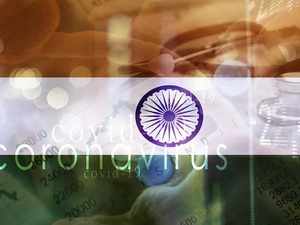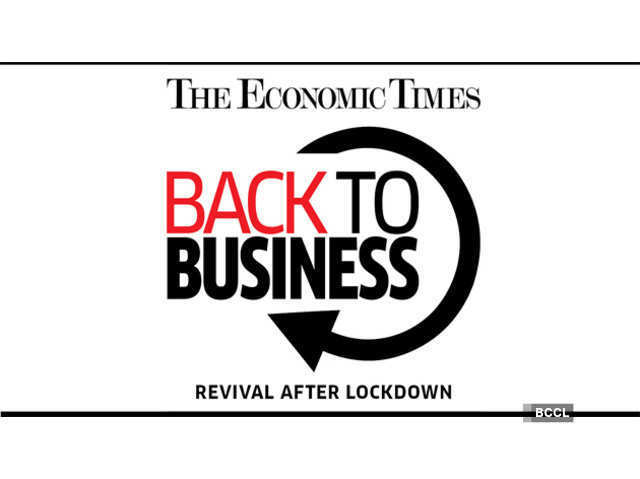 Urgent Lifting Of The Lockout : Government Can Only Stop But Cannot Kick Start The Economy : सरकार सिर्फ अर्थव्यवस्था रोक सकती है चालू नहीं कर सकती —- राजीव उपाध्याय
Urgent Lifting Of The Lockout : Government Can Only Stop But Cannot Kick Start The Economy : सरकार सिर्फ अर्थव्यवस्था रोक सकती है चालू नहीं कर सकती —- राजीव उपाध्याय
मोदी सरकार विश्व की अन्य लोकतांत्रिक सरकारों की तरह धर्म संकट मैं है . लॉक डाउन उठाने से जब बस व् गाड़ियां चलेंगी तो कोरोना केस बढ़ेंगे . मौतें भी बढ़ सकती हैं . टीवी चेनेल रोज़ क्रिकेट की तरह कोरोना का हर घंटे स्कोर बताएँगे . यह बिना जाने की रोज़ देश मैं बीस हज़ार लोग मरते हैं कोरोना से बढ़ती मौतों की गरमा गरम खबर से जनता बेहाल हो जायेगी . सामान्यतः प्रजातांत्रिक सरकारें डर कर लॉक डाउन लिफ्ट करने से कतरायेंगी . इसका दूसरा पहलू भी भयानक है . क्या सरकार मोटर साइकिल की तरह किक मार कर अर्थ व्यवस्था दुबारा शुरू कर सकती है ? इसका उत्तर भी साफ़ है . सरकार अर्थ व्यवस्था रोक सकती थी सो उसने रोक दी . उसे स्टार्ट करना अब सरकार के बस की बात नहीं है .
इसे इस तरह समझें . अप्रैल मैं एक भी कार नहीं बिकी . बिना बिक्री के फक्टोरियाँ किस के लिये कार बनाएंगी ? दूसरी तरफ क्या जनता लॉक डाउन उठते ही कार खरीदने दौड़ पड़ेगी ? ऐसा नहीं होगा .
अगले दो महीने तो फक्ट्रियाँ अपना नुक्सान कम करने के चक्कर मैं रहेंगी . घरों की बिक्री की हालत तो और खराब है . अगले छह महीने नए घर बिकना मुश्किल है . दूकानदार , नौकरी पेशा लोग अभी चुप चाप बैठेंगे क्यों कि सब की नौकरी व् व्यापार खतरे मैं है . घर कार तो क्या लोग बनारसी साड़ी भी नहीं खरीदेंगे , घुमने नहीं जायेंगे , बाज़ार , रेस्टोरेंट , सिनेमाघर भी सुन सान ही रहेंगे . बीबीसी के अनुसार दस करोड़ लोग रोज़गार छोड़ घर बैठे हैं . कोरोना का प्रसार उतना नहीं होगा जितना हम डर रहे हैं .इसलिए यदि लॉक डाउन उठाने मैं देरी की तो इसके भी अर्थव्यवस्था के लिए घातक परिणाम होंगे . जो घर बन रहे उसको दुबारा शुरू करने के लिए मजदूर नहीं मिलेंगे . जनता का विश्वास लौटने मैं लॉक डाउन खत्म होने के बाद भी दो महीने लग जायेंगे. मोदी जी का भारत को पाँच करोड़ डॉलर की अर्थ व्यवस्था बनाने का सपना तो उड़न छु हो जाएगा .
तो इस आगे कूआं व् पीछे खाई की स्थिति मैं सरकार क्या करे ?
सब पहलुओं का मूल्याङ्कन कर यह स्पष्ट है सरकार को अब सुरक्षित क्षेत्रों से लॉक डाउन तुरंत उठा लेना चाहिए . लोगों को मास्क व् दस्ताने पहन कर निकलने की हिदायत दें .सिर्फ स्कूल व् कॉलेज बंद रहें .पहले सप्ताह मेट्रो , रेल व् बस न चलायें पर एक सप्ताह बाद धीरे धीरे सब सेवायें शुरू कर दें .मई के अंत तक सब रेल व् हवाई जहाज सेवाएँ शुरू कर दें . लॉक डाउन हटा कर टेस्ट की संख्या तिगुनी कर दी जाय . हर फैक्ट्री मैं टेस्ट हों . कोरिया की तरह मॉल व् बड़े बाज़ारों मैं थर्मल कैमरे लगा दिये जाएँ .एक लाख लोगों के इलाज की व्यवस्था होनी चाहिए . जून की गर्मी मैं कोरोना से संक्रमण व् मृत्यु दर स्वतः कम हो जायेगी .जुलाई तक देश मैं डेढ़ लाख लोग संक्रमित हो सकते हैं उनके इलाज़ का प्रबंध कर लेना चाहिए.लोगों को घर मैं आइसोलेशन करना सिखा दें व् दो लाख लोगों का इलाज़ करना पूरी अर्थ व्यवस्था को बंद रखने से ज्यादा अच्छा है . मीडिया को भी निर्देश देना होगा की अपनी टीआरपी के लिए कोरोना छोड़ कर अन्य विषय चुन लेने चाहिए. चाहे लॉक डाउन उठायें या नहीं बीमारी व् मौतें तो बढेंगी परन्तु जितनी जिंदगियां हमने कोरोना से गवाई हैं उससे दुगनी सडकों की दुर्घटनाओं की कमी से से बचाई हैं . विपक्ष को साथ लेना भी बहुत आवश्यक है . इस मुसीबत को विपक्ष की सहायता से अच्छी तरह निपटा जा सकता है.इन प्रयासों से कोरोना कण्ट्रोल मैं रहेगा व् अर्थव्यवस्था भी चल सकेगी.
यदि मोदी जी कोरोना से अर्थ व्यवस्था को निकालने के लिए एक अर्थशास्त्रियों की राष्ट्रीय समिति बना दें जिस का अध्यक्ष डा मनमोहन सिंह को बना दें और डा स्वामी व् मोंटेक सिंह को भी उसमें शामिल कर लें तो बहुत उचित होगा . इसमें डा पॉल क्रुगमन जैसे प्रख्यात अमरीकी व् अन्य विदेशी अर्थशास्त्रियों को भी सम्मलित कर लें . थके व् चापलूस सरकारी बाबुओं से अब कोई कोई आशा करना व्यर्थ है . छः साल से उनकी अक्षम्यता जग जाहिर हो चुकी है. भारत की अर्थव्यस्था को कोरोना के बाद पाँच ट्रिलियन डॉलर की बनाना उनके बस का नहीं है और वह पहले की तरह अपनी असफलता को आंकड़ों की हेरा फेरी से छुपायेंगे. एक नए चिंतन व् संभावनाओं का प्रतीक लेख नीचे उद्धृत है . इसकी स्पष्ट वादिता मोदी जी को अपने बाबुओं के झुण्ड से नहीं मिल सकती .वाजपेयी जी ने भी एक बार सोनिया गाँधी को संयुक्त राष्ट्र संघ मैं भारत का प्रतिनिधि बना कर भेजा था . इससे मोदी जी की छवी निखरेगी और देश को भी बहुत फायदा हो जाएगा . इस को राजनीती से अलग रखने के लिए मोदी जी को पहल करनी होगी.
देश की अर्थ व्यवस्था चौपट नहीं की जा सकती.अब और भुखमरी बढ़ाना उचित नहीं है और तीन मई को लॉक डाउन उठा लेना चाहिये
View: With more open trade and investment policies, India could well emerge to be a post-Covid winner
For foreign investors looking for alternative investment locations, India and Indonesia could be top bets.

By Vikram Nehru
Covid-19 is a dark cloud that has suddenly descended on humanity. But even the darkest clouds have silver linings. Indeed, the Chinese word for crisis, ‘weiji’, signifies danger as well as opportunity. The Black Death of Europe in the 1300s, pre-19th century cholera epidemics, and the Spanish flu pandemic in 1918-19 not only shook societies and economies, but also opened new pathways to change.
There is little doubt that the Covid-19 crisis will similarly change the world in profound ways, perhaps permanently. But with it will also come opportunity.
And all countries need to be alert to such opportunities so that some good can potentially be extracted from so much bad.
One of those changes will be a re-evaluation of the long and complex value-chains that have, over the last three decades, supported dramatic improvements in manufacturing efficiency and material standards across the world. These value-chains, financed enthusiastically by investors in advanced economies, have also allowed China to become the ‘factory of the world’.

Efficiency and profits shaped investment location decisions, not tail risks or black swan events. Competitiveness prevailed over resilience.
That imbalance has now been upturned. Firms now will be looking to diversify their sources of supply and demand. Some analysts have urged onshoring production. That is patently absurd. It would only concentrate risk, not diversify it. Firms need greater resilience, but without compromising competitiveness.
To achieve the right balance between the two, investors will be scouring the world for locations where strong States have shown themselves capable of managing black swan events effectively. The Covid-19 pandemic has made that tellingly transparent.
The strong ones dealt with the initial spread of the virus with effective social distancing and lockdown measures, and moved swiftly to mitigate the economic fallout.
Show of Strength
Strong does not necessarily mean authoritarian. Many States that showed their strength in recent weeks have been democratic — New Zealand, Australia, South Korea, Finland, Denmark, Germany, Japan, etc. Strong States possess capacity as well as legitimacy.
Capacity enables States to make informed decisions and then implement them. Legitimacy engenders trust in the State that, in turn, can leverage that capacity because people cooperate and follow orders willingly.
As it happens, strong States also supply other important public goods that international investors find valuable — infrastructure, macroeconomic and social stability, skilled labour, and relatively open trade policies. China fulfils most of the characteristics of a (very) strong State, but it lacks legitimacy. It fails another key test — it is considered an unreliable host country by most Western and Japanese investors because it has been known to use its economic power to pursue strategic goals seen as inimical to most democracies.
China’s willingness to use State power to acquire technological know how, sometimes illegally, hasn’t helped.
For foreign investors looking for alternative investment locations, that leaves very few countries that have strong governments also capable of replacing China as an important source of cheap, skilled labour. Arguably, India and Indonesia should top the list of candidates. They are large countries located near China. Moreover, India
has been unusually effective in dealing with the Covid-19 crisis so far.
It’s important that India is considered to share values and interests that align closely with those of Western democracies. It has impressive entrepreneurial talent, a large internal market and thriving private enterprises. Its analytic, financial and management services are world-class.
Its only drawback is its inherent suspicion of foreign investors, especially in manufacturing, and its protectionist trade policy.
According to an OECD index (bit.ly/2yOPeYo) covering 68 countries, India possesses the eighth most restrictive foreign direct investment (FDI) regime. A Property Rights Alliance trade barrier index calculated for 86 countries ranks India as having the most restrictive trade regime bar none.
Clearly, India needs a fundamental shift in its attitude toward trade and foreign investment if it is to figure in the emerging post-Covid-19 calculus of foreign investors. In the event it doesn’t, it will once again forgo an opportunity
to benefit from the expected post-Covid tsunami of firms that will choose to relocate away from China.
Indeed, ever since the global financial crisis, more than 50 global companies (Apple, Nintendo, Sharp, HP, Dell, etc) based in China were already shifting, or planning to shift, their production location to other countries. Most were motivated to relocate on account of rising unit labour costs, as rapid wage growth in China outpaced labour
productivity growth.
The US-China trade war accelerated the exodus. Japanese firms, which have a significant presence in China, had an added impetus.
The Ship Sails Soon
Companies propelled by these pre-Covid-19 push factors chose to relocate in Vietnam, followed by Cambodia, Malaysia and Mexico. Barely any chose to relocate to India.
The post-pandemic world will see a much larger exodus from China. Tokyo has already announced it will help Japanese firms diversify away from China either to Japan or to other Asian countries. Other advanced country governments are also likely to urge their investors to follow a similar strategy.
If India complements its State capabilities with more open trade and investment policies, it could be a major beneficiary of these supply chain realignments and its ‘Make in India’ strategy would get a jump-start. If it chooses, India could be a winner in a post Covid-19 world.
The writer is distinguished practitioner-in-residence, Johns Hopkins University School of Advanced International Studies, Washington DC, US
ए.
